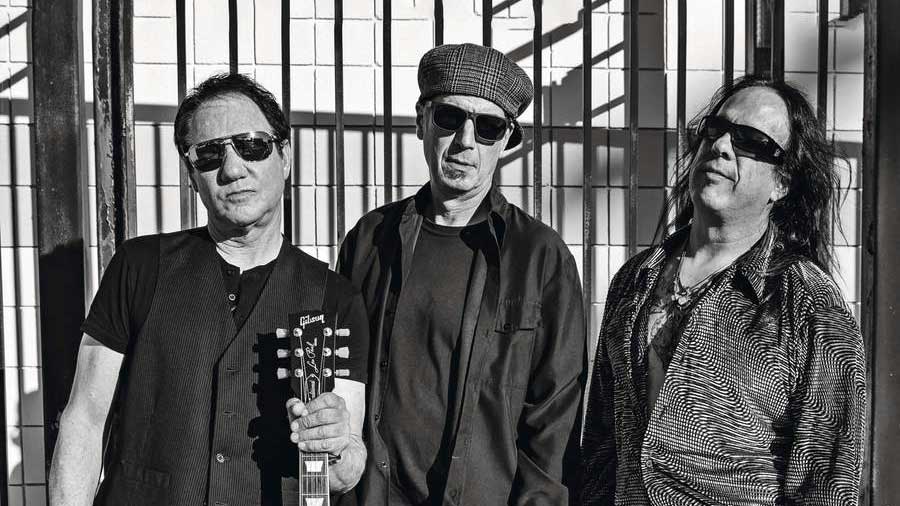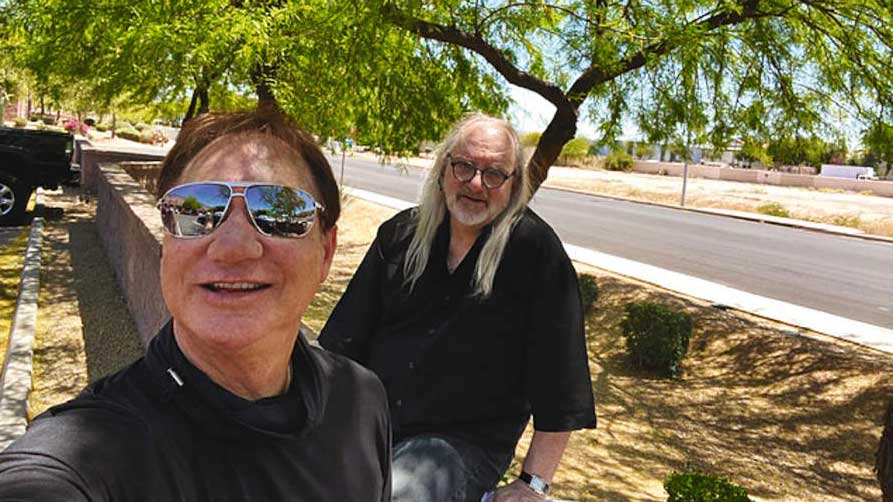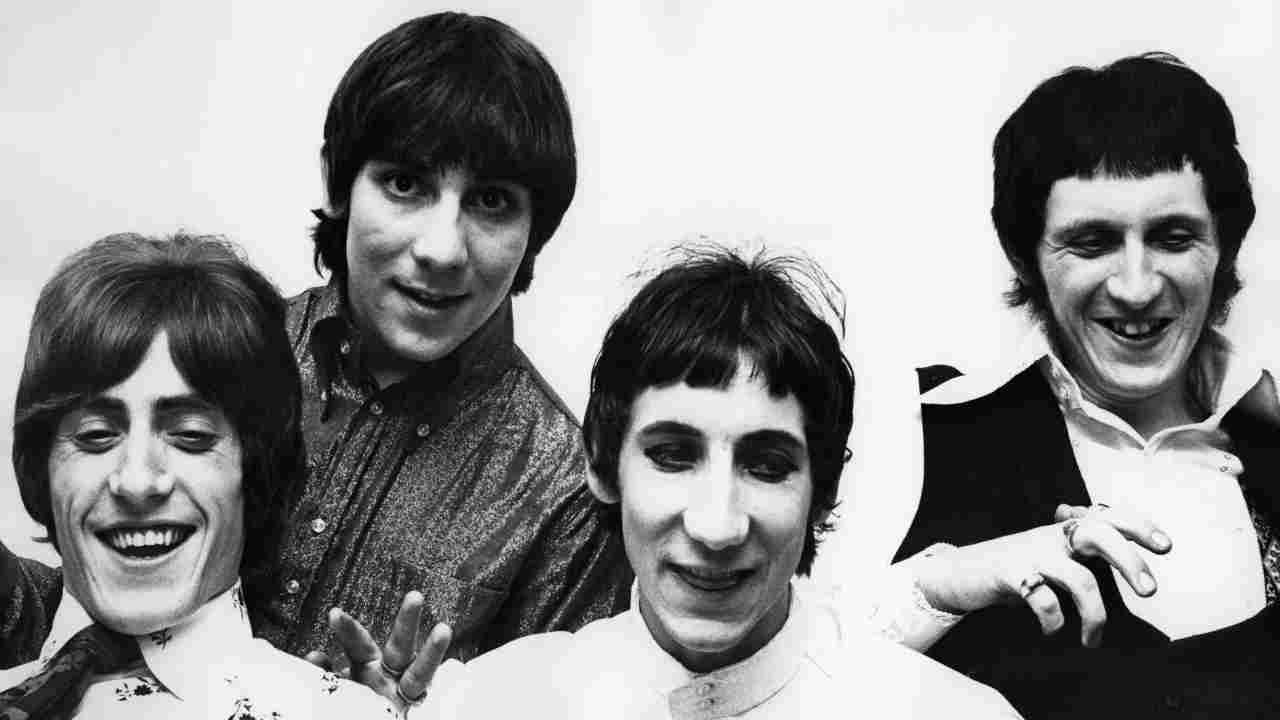Letchen Grey: the return of Sunset Strip's nearly men
In 1986, Letchen Grey were the Sunset Strip’s hottest tip – until their rise was halted by cancer and cruel fate

On the office desk of his Arizona home, Alan Niven has two objects that chronicle the rise and fall of the Sunset Strip’s great forgotten band. The first is a scrappy page of gig listings for the Troubadour club, torn from BAM magazine back in April April ’86.
“In mid-week, in tiny print, there’s a band called Guns N’ Roses,” notes the veteran manager and producer. “But on the Friday night, billed in much larger print, there’s Letchen Grey.”
The second object pulls you up short. It’s a mirrored box, holding the ashes of Frank Surber, the guitarist who seemed destined to lead Letchen Grey to glory, but succumbed to an agonising death from cancer while still a footnote. Niven sighs. “This band got dealt a motherfucker of a hand.”
All this might be just another sorry case of the Strip’s unique capacity to steal dreams and break good men, were it not for the improbable twist that, three decades later, Letchen Grey live again.
They are led by classic-era members Mark Andersen (rhythm guitar) and Eric Asevo (vocals/bass). The three new songs produced by Niven and Chris Catero this April are strong in their own right, especially the moody and propulsive Burn.
“Los Angeles is the flame,” explains Andersen. “People come out here, get too close and get burnt."
But it’s the context of Letchen Grey’s first run that gives the new material its emotional heft, the full stop at the end of a sentence scrawled in blood and tears. I tell Andersen – now commanding a six-figure salary as a California water board executive – that I’m not sure whether it’s a happy story or a sad one. He shrugs: “I can’t make up my mind, either.”
Sign up below to get the latest from Classic Rock, plus exclusive special offers, direct to your inbox!
You decide. The first memory Niven has of Letchen Grey goes back to late ’85, when Don Dokken pushed the band his way. “Mark had asked Don to record their first EP, and he didn’t want to. But there were two things about Mark that made an impression. One was that he was a really amenable guy. The other was that he had a great right hand and came up with nifty licks.”
Andersen knew the scene inside-out, too. “I’d played all the clubs in Hollywood,” he reflects, “and I could name-drop all day long. Jack Russell from Great White was my room-mate. [Mötley Crüe’s] Nikki Sixx would come pick me up while he was making the Theatre Of Pain album. I hung out with Dave Mustaine before Megadeth.”
Niven didn’t see why Letchen Grey couldn’t join that pantheon. “To be blunt, when I looked around at their contemporaries, there were plenty of bands getting attention where the measure of ambition was greater than the talent. Nikki Sixx couldn’t play, and [Crüe’s] Vince Neil had a whiny, atonal adenoid of a voice. Why should limitation and inability stand in the way of the Greys?”

Letchen Grey's debut EP, 1986’s Party Politics, became a cult favourite. But looking ahead, Niven felt a hot-shot lead guitarist would elevate the band. “That’s when Mark found Frank Surber, this California perfection of a guy. Really good looking, surfer vibe. He could bend a note. Frank turned an entertaining little project into me thinking: ‘This may be about to get serious.’”
“Frank could play like Randy Rhoads,” picks up Andersen, “or he could play blues and jazz. As a player, he had the same sort of versatility as Phil Collen from Def Leppard. He wasn’t a womaniser. He wasn’t a drinker. He wasn’t mean-spirited. Frank would have taken us to the next level, for sure. Then, one day, he just disappears.”
Six weeks passed while the band hunted for their talismanic guitarist, a task complicated by Surber’s lack of a social footprint. “We could not find anybody,” says Niven. “He’d never told us about any family. He’d never given us a name or a city. Finally, I get a call, and Frank says: ‘I think you’d better come and see me.’ He gave me an address in Duarte.
"And it was one of those wretched, stomach-sinking, what-the-fuck moments when I pulled into the car park, because it was a cancer hospice. I walked in there, and he was skeletal, except for an explosively swollen stomach. He had been hit by cancer really hard and fast. It devoured his entire body, very quickly."
“It was almost like he was disfigured,” Anderson adds. “It was tragic. The band fell apart really quickly. We were with the record label Greenworld, selling records, we were in all the magazines, right up there with Queensrÿche, Def Leppard, Bon Jovi. Then Greenworld folded and all our master recordings disappeared. So we’re sitting there, a bunch of twenty-year-olds, and our fucking guitar player has just died.”
As Niven’s management career lifted off with Guns N’ Roses, he didn’t have the capacity to rebuild Letchen Grey. “I knew that was going to be a demanding motherfucker of a project. I knew there was only so much gas in my little tank, and I was also aware that a certain individual in GN’R was controlling, to say the least, and utterly resented the relationship I’d had with Great White since 1981. So for me to say: ‘I’m trying to put this other young band together…’, that was not going to fly.”
What Niven could do was give Surber a worthy send-off. “When Frank passed, the hospice put the responsibility of his body on us. We decided we’d take his ashes up in a Cessna 172 and spread half of them over Santa Monica Bay. Then I had one of those whimsical thoughts – and for years I’d take a tiny handful and very discreetly drop it on the stage of a gig, giving him the tour he never had.
"Frank ‘opened’ for Great White, Guns N’ Roses, Twisted Sister, Iron Maiden, Alice Cooper, even the Rolling Stones. I couldn’t tell anybody what I was doing, because you can imagine how batshit they would go. ‘What do you mean you’re spreading somebody’s mortal remains over the stage?’ What’s left of him is in this box on my desk.”

Niven and Andersen kept up a friendship. But it wasn’t until April ’21 that the guitarist called up to pitch a new session for Letchen Grey.
“It was on a whim,” he remembers. “For several years, Eric and I had been playing covers in the local dive bars. We just looked at each other and said: ‘We should start writing again.’ I realised that good music can last forever on the internet. Nobody has to know what’s going age-wise, but if we can write good songs, that could be our fountain of youth.”
Now living deep in the Arizona desert, Niven suggested they load a pickup, drive to Phoenix and “see what happens”. The omens were inauspicious, with pre-production nixed when the drummer didn’t show up. But at SER Soundworks in Arizona the magic happened.
“Being an old dog, I have an analogue soul,” says Niven. “So much recording today is inhuman to me, because it doesn’t move. I mean, check out the beats per minute on [the Stones’] Honky Tonk Women. Where it starts in tempo and where it ends is extraordinary. It’s not about perfection. It’s about conviction.”
How long Letchen Grey’s afterlife will last, neither man can say. That three-song burst could be the sign-off or the segue to the glory that might have been theirs first time around. Either way, Andersen and Niven feel a circle being completed, as well as the distinct sense of an unseen band member willing them on.
“Things turn out for a reason,” considers the guitarist. “And even if this music never gets off the ground, in my heart, I feel a little bit validated.”
“I used to describe myself as a world-class atheist,” Niven concludes. “But out here in the desert, I sit out on the deck and watch the most amazing canopy of stars above me, every single night. It changes your way of thinking. Frank is here in the box with me. But I have no doubt he was in some way involved with these recordings. He might have been one of the voices in my head that said: ‘Tell Mark yes.’
"I don’t know. I won’t know until I shuffle off this mortal coil. But I remember Mark and I sitting outside the studio one hot afternoon. We looked at each and we just said: ‘Frank’s here…’”
Learn more at Letchen Grey's website.
Henry Yates has been a freelance journalist since 2002 and written about music for titles including The Guardian, The Telegraph, NME, Classic Rock, Guitarist, Total Guitar and Metal Hammer. He is the author of Walter Trout's official biography, Rescued From Reality, a music pundit on Times Radio and BBC TV, and an interviewer who has spoken to Brian May, Jimmy Page, Ozzy Osbourne, Ronnie Wood, Dave Grohl, Marilyn Manson, Kiefer Sutherland and many more.

